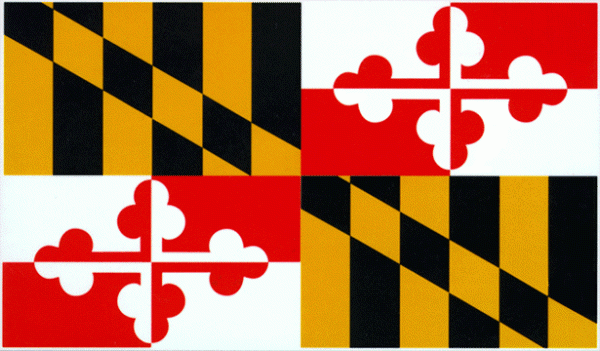You have /5 articles left.
Sign up for a free account or log in.

State of Maryland
A three-judge panel on Wednesday ordered Maryland and its historically black universities into mediation to try to resolve a long-running lawsuit over program duplication and segregation, warning failure to settle likely means years of costly and divisive litigation hurting higher education in the state.
Although both sides in the dispute presented their arguments well, neither “has a realistic appreciation of the strengths and weaknesses of their respective claims and contentions,” according to a three-page order from the panel of judges for the U.S. Court of Appeals for the Fourth Circuit.
“The Court is of the firm conviction that this case can and should be settled,” the order says. “Otherwise, the parties will likely condemn themselves to endless years of acrimonious, divisive and expensive litigation that will only work to the detriment of higher education in Maryland.”
Supporters of the historically black institutions backed the decision Thursday, saying they have been committed to negotiating in good faith.
“Given the legal gravity of this case, the ruling by the Fourth Circuit reaffirms our long-standing commitment to mediate in good faith and fairness with the State,” said David Burton, president of the Coalition for Equity and Excellence in Maryland Higher Education, one of the case's plaintiffs, in a statement. “We trust that Maryland will now do the same.”
The HBCU supporters believe they drew a relatively conservative panel of three judges that nonetheless didn’t rule in the state’s favor. That, they hope, will signal to the state that it needs to take a different approach going forward.
“They’re kind of running out of courts,” said Jon M. Greenbaum, chief counsel at the Lawyers’ Committee for Civil Rights Under Law, which argued the HBCU supporters’ case last month along with the law firm Kirkland & Ellis. “Our hope is that maybe this will create a change in tenor.”
Of course, the court didn’t rule in the plaintiff’s favor, either. Greenbaum acknowledged that judges had harsh words for both sides.
“We have to consistently evaluate what the realistic settlement is going to be under the circumstances,” Greenbaum said in a telephone interview Thursday. “But it’s never been to a point where it’s even been close.”
Several Maryland entities and government offices are involved in the lawsuit. A spokeswoman for the Maryland Office of the Attorney General declined comment Thursday. A spokeswoman for the state’s governor, Larry Hogan, said the state is interested in reaching an agreement.
“As our administration has throughout this case, we reached out to the plaintiffs and their supporters in an effort to resolve this matter prior to the 4th Circuit ruling,” said the spokeswoman in an email. “We remain interested in reaching an agreement that will conclude the case in a way that is fair and equitable for Maryland’s college students.”
Hogan offered as much as $100 million over 10 years to historically black universities last year. That was more than double the amount offered earlier in the case, but HBCU backers argued that the offer didn’t address what they see as a history of predominantly white institutions duplicating programs that were successful at HBCUs, undercutting the historically black institutions.
Others on the state’s side noted past rulings in their favor. The University System of Maryland is committed to a mission of excellence and inclusion, and historically black universities play an important, valued role in that mission, a system spokesman said in an email. He went on to reference past rulings, including rulings that rejected controversial proposals.
“The trial court found that the State was equitably funding its historically black institutions’ operations and facilities, and that the historically black institutions were not limited in their missions in comparison to non-historically black institutions,” he said. “The trial court also rejected the Coalition’s proposed remedies of transferring academic programs among campuses, merging two institutions, and dramatically reducing the size and role of another institution.”
Mediation is to conclude by April 30. The appeals court ordered the mediator to report progress every 30 days, to the extent allowed by confidentiality rules.
The new order represents yet another step in a case that has dragged on for over a dozen years. In 2006, a group of historically black college and university supporters sued the state of Maryland, alleging violations of the Civil Rights Act and the equal protection clause of the Constitution. The case centered around the question of whether Maryland had caused segregation at historically black universities by allowing their successful programs to be duplicated by traditionally white institutions. Under that line of thinking, unnecessary duplication would effectively prevent the historically black institutions from enrolling diverse student bodies.
U.S. District Court Judge Catherine C. Blake found in 2013 that the state could not justify effects of segregation from unnecessary program duplication. The parties went into mediation, failed to agree and submitted competing proposals in 2015. Blake went on to order the appointment of a “special master” in 2017 to create a remedial plan and monitor it under court supervision.
The plan would have created new unique or in-demand programs at the historically black institutions. It also would have provided them with additional funding for efforts like marketing, recruitment and financial aid.
The Fourth Circuit stayed the district court’s orders Wednesday. During oral arguments, Fourth Circuit Judge J. Harvie Wilkinson III voiced skepticism about adding a layer of bureaucracy by appointing a special master, The Daily Record reported.
Also at oral arguments, Judge Stephanie D. Thacker indicated the record doesn’t show the state to be working with the plaintiffs after Blake’s ruling. She asked what assurance the court would have that the state would come to the table if the Fourth Circuit reversed the district court.
“It seems like the state didn’t really come to the table on the remedy issue, well, at all or much,” she said, according to The Daily Record. A lawyer for the state said it would come to the table if liability was affirmed, the newspaper reported.




